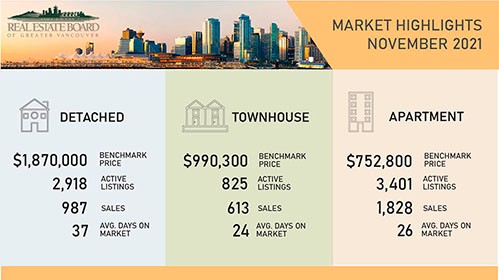Special thanks to Eitan Pinsky, our Mortgage expert for the folloing info;
Buying and Selling - How Dates Can Line Up
| Buying and Selling – How Dates Can Line Up |
| It can be fairly complex when you want to buy a new property and you need the equity in a property you want to sell. IE, how can you buy and sell at the same time? How do the dates work?! When you purchase and sell, you can either get a new mortgage and pay out your existing mortgage, or, you can port your current mortgage to your new property. If you’re upsizing and are in need of more money, check out our “porting” article here, which discusses all about how increases to your mortgage can be done. Before we go any further, I want to identify specific dates that are important, and then chart them for various scenarios. –Purchase Accepted Offer (PAO): Your offer to purchase is accepted. –Purchase Subject Removal (PSR): The deposit is due and you have removed subjects and gone “firm” on a property. Once you remove your subjects or conditions to your offer, you are legally required to purchase the property. –Purchase Close (PC): This is the date at which you now own the new property. –Sale Accepted Offer (SAO): This is the date at which you’ve accepted an offer to purchase your own property; you are under contract to sell your property. –Sale Subject Removal (SSR): This is when the purchaser of your property is now firm or legally required to purchase your property. –Sale Close (SC): This is the date at which you have sold your old property and you no longer own it. |
Possible Scenarios from easy to complicated: A) Sell your property fully and then purchase. |
 |
| In this scenario, you sell your property with subjects removed and then close. Then purchase, remove subjects on the purchase, pay your deposit, then close on the purchase. Easy peazy because we’ve received the proceeds (sale price minus mortgage (if applicable)) from our sale of our property. B) Sell your property with subjects removed and then purchase a new property. B1 The closing date of the sale is before the purchase. OR B2 The closing date of the purchase is before the sale. |
 |
| In the scenario above, you sell your property with subjects removed and then purchase. If the sale of your property (SC) happens before the purchase of your new property (PC), then we’re in easy peazy territory; no extra financing is required. However, if the purchase (PC) happens before the sale (SC) of your property, then you wouldn’t have received the proceeds from your sale yet. This means that bridge financing is required. Bridge Financing: This is when we have had the subjects removed on the sale of our property (SSR) and have purchased another property (PC), but have not yet sold a property. As long as the subjects on the sale (SSR) have been removed, lenders are willing to “bridge” you the money from when you purchase to when you sell. Basically, the lender is willing to give you a mortgage for what you would need after the sale is all said and done, and also lend you more money, the bridge financing, in order to complete the sale. The bridge financing is paid back to the lender as soon as your sale closes (SC). C) Sell and purchase, or purchase and sell and remove subjects on the purchase just after removing subjects on the sale. |
 |
| In the scenario you only committed to the purchase once you’ve made sure the sale (SSR) of your property is firm and binding. In this way, lenders will give you a mortgage assuming that the property that you’re selling is already sold. In other words, as well as the buyer of a property you’re selling as removed subjects, from a lender’s point of view, you no longer own that property and the debt associated with the property is negated. Again, like in B) above, as long as the subjects have been removed on the sale of your property, you can get Bridge Financing. D) Purchase and sell, or sell and purchase and remove subjects on the purchase before the subjects have been removed on your sale of your own property. |
 |
| In the scenario above where you’ve committed to purchase a new property (PSR) and you have not yet sold your current property (SSR), the time in between, the red arrow and red line, identifies uncertainty for you. The key question here is: can you purchase and close this new property (PC) if you are not sure that you can sell and close your current owned property (SSR and SC). If you do decide to go firm on the purchase of a property (PSR), you must have a backup plan. The backup plan cannot be wishful thinking in terms of: “I hope that someone buys my property…” The backup plan must be: 1. You can get approved for a new mortgage even if you have not sold your current property, and/or, 2. You have “interim financing” available for you. Interim Financing: This financing is like bridge financing but much more expensive. It assumes that both properties are still owned. There are usually fees involved, with much higher interest rates; bridge financing can cost anywhere from $5,000-25,000. Interim financing is a last resort… Interim financing could be considered in the following scenario: You have found your dream house!! You would do anything to purchase this next property and paying a fee and higher mortgage interest costs is OK for you. In this case, if you do find your dream house and must go “firm” on the purchase of your property, interim financing would help you know that you can actually purchase this property (PC) and hold both your current property and this new dream house at the same time. The interim financing would be paid back/off once your property sells (SC). Now, prior to actually closing the purchase (PC), if you do indeed find a buyer who removes subjects on your sale (SSR), you would now be able to get bridge financing. Phew. … So remember, if you’re purchasing a property and removing subjects (PSR), make sure the subjects have been removed on the sale of your property (SSR), or have a backup plan. Each situation is unique so please don’t hesitate to contact me if you have any questions!  |
|
|
Eitan Pinsky Owner - Mortgage Expert m: 778-990-8950 550 - 2608 Granville Street, Vancouver, BC, V6H 3V3 -Map |










